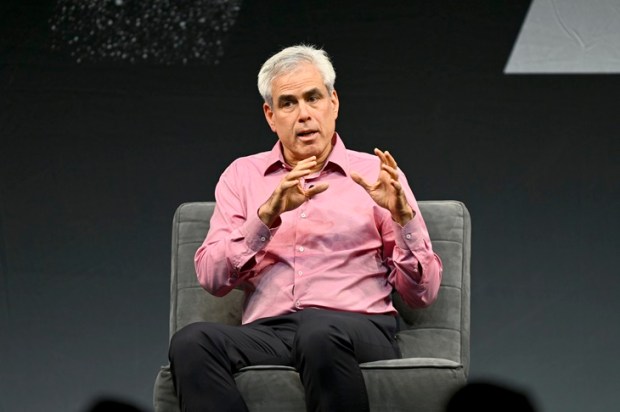Two of my summer reading books had me thinking afresh about free speech. The first one was The Happiest Man on Earth by Eddie Jaku. He grew up in Germany and worked hard to be a good citizen. His family and friends also worked hard and each appreciated the other. They celebrated the opportunities they had as families and as a community.
Second to being a German, Eddie was a Jew. He thought that of no consequence in his community, until those whom he respected and loved as fellow Germans joined the ranks of Jew hunters (my term). He suffered physical pain through the beatings and other torment he received as a prisoner in a concentration camp. But the confusion of the change in the members of his community was a deeper pain and of course lingered until much later in life (if not for all his life). He had two great joys when he came to Australia: he was free from persecution plus he was free of government intervention when he and his family worked hard to make a living. Thus, he became the ‘happiest man on Earth’.
Within this new peace, he never forgot the past. He never stopped telling the story of terror and horror mixed with courage and survival of the Jews in the face of the deep, thorough, and evil Holocaust. He also taught that words matter – and that words that incite harm within a self-promoting ideology can turn the hearts and minds of even the friends in your street.
The other book I read on this theme about the freedoms and limits of our speech was JS Mill’s On Liberty. His concern, now well known, was to describe the proper relationship between ‘individual independence and social control’. Early in the treatise, it is easy to see that Mill was no libertarian absolutist. It was the proper relationship between individual freedom and coherent society that he had clearly in mind, and the theme occurs regularly throughout this work.
His statement about personal autonomy is well-known: ‘Over himself, over his own body and mind, the individual is sovereign.’ Mill gives many examples of problematic patterns of government interference, some of which he claimed could put truth ‘back for centuries’. Towards the end of his essay, he gives some notable case studies, one of which involves education. He was blunt in saying that the government should only be involved when parents cannot afford to send their children to one of the parent’s education choices.
As he pointedly noted: ‘If the government would make up its mind to require for every child a good education, it might save itself the trouble of providing one … a general State education is a mere contrivance for moulding people to be exactly like one another…’
However, it seems that Mill’s statements about when social intervention is necessary are less well known – for example: ‘That the purpose for which power can be rightfully exercised over any member of a civilised community, against his will, is to prevent harm to others. His own good, either physical or moral, is not a sufficient warrant.’ So, according to Mill, if members of a community declare it is good to persecute other members of society, that does not give them the right to do so.
Another reason for government intervention, for Mill in this essay, is keeping what he called ‘barbarism’ in check: ‘Despotism is a legitimate mode of government in dealing with barbarians.’ What does he mean by ‘barbarian’? Mill seemed to carry an implicit assumption that people needed appropriate training to be civilised – that is, for general society to have a level of self-discipline such that the people in it could have ‘the capacity to be guided to their own improvement by conviction or persuasion’. It is at that point that Mill writes strongly about the overreach of those in authority, for he notes that at that stage of civic development, ‘…compulsion, either in the direct form or in that of pains and penalties for non-compliance, is no longer admissible as a means to their own good.’ But he continues his concern for both independence and social order, when he again writes: ‘…and [compulsion is] justifiable only for the security of others.’
So, Mill had a clear understanding of personal freedom that should also be limited when it interfered in real ways with others’ freedoms. He also assumed that such freedom required the self-discipline that arose within a civil society, in contrast to barbarism. Applied to speech, people can have any opinion they want. However, if through their actions in the way they express those opinions, they hinder the movements and freedoms of others, other people should try to dissuade them. If that does not work, authorities should step in. It seems that currently in Australia, we have lost confidence in clearly understanding and applying both principles. That loss of wisdom is most clearly seen in the increasing anti-Semitism of our times.
Jews, and all Australians, need to be able to practice their faith safely. Others should not prejudice their freedom of association, speech, and movement. But increasingly, they cannot. We find ourselves in this situation because of immature, clouded, and confused thinking by our leaders. They mistakenly believe that people who call others to harm fellow citizens should be as free as their opinions to think about it. Mill was very clear on this: ‘A soon as any part of a person’s conduct affects prejudicially the interests of others, society has jurisdiction over it.’
Indeed, consider this final quote from Mill with reference to our opinions and actions:
No one pretends that actions should be as free as opinions … acts, of whatever kind, which without justifiable cause do harm to others may be, and in the more important cases absolutely require to be, controlled by unfavourable sentiments from others, and, when needful, by the active interference of mankind. The liberty of the individual must be thus far limited: he must not make himself a nuisance to other people.
Do you think those preachers and leaders calling for the destruction of a democratic nation, the people within it, and their kin around the world, are creating a nuisance? Think about that when a Jew is told that they ‘can’t go there’ because of others. Oh, and remember, who are the people who are ‘grafted into the lineage of the Jews’? According to the Apostle Paul, it is the Christians. That is why the socialist and fundamentalist controllers come first for the Jews, and then soon after, the Christians.

























